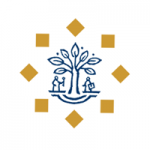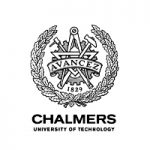项目介绍
Your position
The PhD project is part of an ERC Consolidator Project “NONLINEARSCIENCE” which will be supervised by Prof. Dr. Ir. Joris Mulder (Dept. of Methodology & Statistics) and colleagues. This PhD project will focus on informative prior specification of Gaussian process models for nonlinear social science problems. Informative priors ensure that external, contextual information is incorporated in the analysis to ensure realistic conclusions. These priors are particularly important for nonlinear statistical problems because nonlinear statistical models, such as Gaussian processes, are highly flexible and therefore may easily overfit the data and may result in unrealistic trends. Informative Gaussian processes priors will therefore robustify our conclusions. This can be done in many different ways, and the goal of this project is to contribute to this important open methodological/statistical problem. Moreover, implementation of these new methodological contributions in statistical software (R and JASP) will be an important aspect of the project to allow researchers to use these techniques for their own research.
Regular meetings with the supervisor will be scheduled to review and discuss the project’s advancement. The department fosters an open working culture, emphasizing mutual respect and appreciation among its members.
The project will be supervised by Prof. Dr. Ir. J. Mulder and Dr. U. Böhm.
Your responsibilities
- Your research work includes literature reviews, developing and extending statistical methodologies, analyzing theoretical & practical properties, analyzing empirical data, developing statistical software, and writing research reports.
- You will prepare scientific articles to be published in international journals, present key findings at national and international scientific conferences, and write a dissertation.
- You will actively participate in the Department of Methodology and Statistics.
- You will contribute to Open Science and Team Science.
- You will contribute to education and supervision (e.g. supervising bachelor’s theses and research skills groups; not more than 10% of your time will be devoted).
Background
Many, if not all, real-world phenomena are nonlinear by nature. No mechanisms exist that can be described as a straight line having a fixed slope that goes on forever. In the social and behavioral sciences, nonlinearity can be observed in many empirical applications. Examples include the nonlinear integration process of new workers, the nonlinear temporal trajectories of well-being surrounding negative life events (e.g., unemployment, widowhood), or energy levels of students that progress in a nonlinear fashion (to name a few). To study such nonlinear phenomena, the challenge is to learn the entire nonlinear shape from the data rather than only learning the linear slopes as when using traditional (generalized) linear models. Moreover, prior information (e.g., based on experts’ knowledge or contextual information) may be available that can inform us about plausible nonlinear shapes before observing the data. By combining these sources of information, we can have a more informed understanding about complex nonlinear social phenomena. For these statistical problems, Bayesian Gaussian processes will be used. The aim is to extend, apply, and disseminate this flexible methodology from the Bayesian machine learning literature to nonlinear statistical problems in social research.
Your profile
We are looking for strong PhD candidates with a background in applied/mathematical/Bayesian statistics, applied machine learning, psychometrics, sociometrics, econometrics, or the like, and a strong interest in nonlinear statistical modeling. An important skill for this PhD project is to have an intuitive/conceptual understanding of (prior) probability distributions and being able to translate this to statistical models for empirical data problems. Candidates with a social science background with very strong quantitative skills can also apply.
Other requirements include:
- A (nearly) completed (research) master’s thesis in the applied/mathematical/Bayesian statistics, applied machine learning, sociometrics, psychometrics, econometrics or the like.
- Programming skills (e.g., R, C, Stan, or others) are a must.
- Research skills and data analytical abilities.
- Communication and cooperation skills and the willingness to work in a team.
- Project management and organization skills. Interest in open science and team science.
- Proficiency in English, including academic writing.
- Interest in providing small-scale education, such as teaching working groups or bachelor thesis supervision.
Our offer
Tilburg University offers excellent benefits in a pleasant working environment:
- A position based on 1.0 fte (40 hours per week).
- A salary of minimum €2.901 and maximum €3.707 gross per month for full-time employment, based on UFO profile PhD and salary scale PhD. Tilburg University uses a neutral remuneration system based on relevant work experience.
- This is a vacancy for for a PhD in accordance with Article 2.3 paragraph 8 sub b CLA DU. You will initially be given a temporary contract for the duration of 12 months.
- Vacation pay of 8% and a year-end bonus of 8.3%.
- Over 8 weeks of vacation leave.
- The opportunity to work partly on campus and partly from home with a home office allowance of €2 per day.
- Reimbursement for sustainable commuting: walking, cycling, and public transport.
- A monthly internet allowance of €25.
- An options model in which you exchange benefits for things such as additional leave, more pension, a bicycle or personal training at our Sports Center.
- A moving allowance (subject to conditions).
- Employees from abroad may be eligible for a tax-free allowance for extraterritorial expenses equal to 30% of taxable salary.
- A pension with ABP; the largest Dutch pension fund.
- Training in personal development, career development, leadership, education, and research. Or a language course at our Language Center.
- A work culture in which we embrace differences, everyone is welcome and given equal opportunities.
- A vibrant campus in green surroundings that is easily accessible by public transport.
For more information, see our Working at Tilburg University | Tilburg University and the CLA Dutch Universities.
Information and application
Would you like to know more before applying? Feel free to contact to email Joris Mulder via j.mulder3@tilburguniversity.edu.
We kindly invite you to apply before May 24, 2025; this can only be done online. Address your cover letter to Prof. Dr. Joris Mulder. Your application should include:
1. Letter of motivation, including research area/topics of interest
2. Curriculum vitae
3. List of grades (transcripts)
4. A sample of your academic writing (e.g. bachelor/master thesis, paper). If you are currently working on your master thesis, feel free to submit your thesis draft.
You will receive notification from us shortly after the letter selection. The first selection interviews will take place shortly after the deadline has ended.
The selection committee consists of:
1. Prof. Dr. Ir. Joris Mulder
2. Dr. Udo Böhm
The project is planned to start on September 1st, 2025. We can slightly deviate from this starting date if needed.
About Tilburg University
Tilburg University is an academic, inclusive, and engaged community. Together with nearly 3,000 employees, we are committed to broad prosperity, sustainably, and inclusion. For current and future generations. We develop and share knowledge for the requirements of people and our society. This is how we contribute to solving complex social issues and help society move forward.
We educate our 19,500 students of 110 nationalities to become responsible leaders with knowledge, skills, and character. With our education and research for broad prosperity, we exceedingly focus on themes such as mental and preventive care, an inclusive labor market, the energy transition, and digitalization.
About Tilburg School of Social and Behavioral sciences
Tilburg School of Social and Behavioral Sciences (TSB) is one of the five faculties of Tilburg University. The teaching and research of the Tilburg School of Social and Behavioral Sciences are organized around the themes of “Adaptive societies, organizations, and workers”, “Healthy life span”, and “Personalized prevention and care”. The School’s inspiring working environment challenges its workers to realize their ambitions, involvement and cooperation are essential to achieve this.
Tilburg School of Social and Behavioral Sciences | Tilburg University
Department Methodology and Statistics
The Department of Methodology and Statistics is responsible for education and research in methodology and statistics for the social and behavioral sciences. Methodology and statistics play an essential role in all subfields of the social and behavioral sciences, and related fields. At the Department of Methodology and Statistics we do research on and teach about quantitative and qualitative methods that researchers need in order to answer challenging research questions, come up with strong research designs, critically apply statistical analyses, and avoid bias when interpreting research findings. Within the department, there is a strong focus on developing novel statistical and methodological techniques to tackle complex problems in the social and behavioral sciences.
Link to our website: Department Methodology and Statistics | Tilburg University
Recruitment code
Tilburg University applies the recruitmentcode of the Dutch Association for Personnel Management & Organization Development (NVP).
联系方式
电话: +31 (0)13 466 9111相关项目推荐
KD博士实时收录全球顶尖院校的博士项目,总有一个项目等着你!




